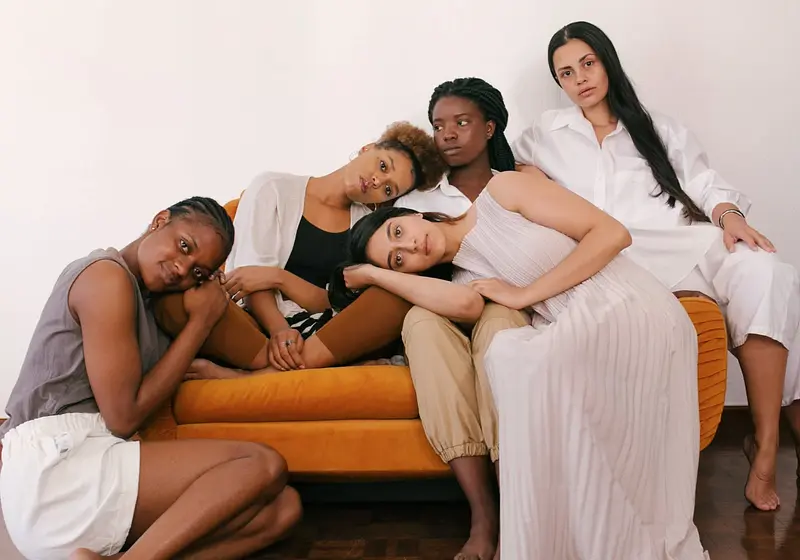With the recent appointment of Leena Nair as the CEO of celebrated fashion house Chanel, discussions surrounding intersectionality and women's upward mobility have resurfaced. Nair's appointment to the CEO position not only marks her amongst a select few women who are heading up couture brands, but also amongst a small roster of women of color who've been able to progress to higher level executive jobs in general.
In modern society, the "glass ceiling" that to a large extent prevents the upward mobility of women has become a criticized, but accepted facet of industry and management. In the upper echelons of Wall Street private equity firms, women comprise only 9 percent of executive positions and only comprise about a fifth of the general workforce, according to a 2017 report by Preqin.
There's been a consistent debate about why women are functionally pushed out of higher up positions, and what that has to say about modern management and gender equality.
Gender inequality is not exclusive to the finance industry. Particularly for students hoping to go into public health and executive hospital professions, considering medicine is a female-dominated industry, they may still struggle to achieve those executive positions.
The gender gap present in administrative roles fosters a one-dimensional approach to health and commerce that results in women being overlooked by policy and effectively told to "stay in their place."
Let us slide into your dms 🥰
Get notified of top trending articles like this one every week! (we won't spam you)Women in Leadership Positions are Backseat Drivers in Policymaking
Global health leadership being primarily male-dominated furthers the fact that women in multiple fields, even if a majority of students and educators in the field are women, are denied advancement and growth because of inherent gender biases.
Especially during coronavirus, estimated demographics show that an inordinate 51.8% of hospitalists identified as female; without professional growth as a prospect, women contribute the same, if not more, to active community health but aren't compensated the same. Medscape asserted that male hospitalists are afforded a 30% higher compensation than their female counterparts.
Emerging global health organizations also don't have women at their helm. The World Health Organization's Directors Office has three women out of a total of ten committee members.
In the finance sector, women only make up about 20% globally on executive committees of upper-crust companies. Only 41 CEOs of Fortune 500 companies were women, and the only two black women on the roster contributed to a grand total of three to ever make the list.
Even a female-dominated industry like fashion, where consumers are often drawn in by influencers such as Gigi Hadid and Kendall Jenner, doesn't even afford women the opportunity to spearhead commerce and operations. Nair's appointment, and the outburst of support in favor of her position, shows that this isn't a normal occurrence, which presents a big issue when it comes to representation across the board.
Take the Quiz: Which Indian city is the perfect holiday spot for you!?
Let's match you with an Indian city that you would love!
The United States is One of a Select Few Countries That Doesn't Provide Paid Maternity Leave
The maintenance of the glass ceiling and the lack of female mobility in administrative roles are often associated with the role the woman plays in the family; the United States congress recently tanked a bill that would have given burgeoning families 12 weeks of paid maternity leave, an amount that already pales in comparison to global competitors like France and the UK. The proposal was cut down to four, and is still up for debate in office.
Social welfare would inherently benefit by giving more women the opportunity to work in the workforce, and that requires there to be a better maternity leave policy that allows women to maintain higher level positions without suffering through post-pregnancy care and denied a steady income.
The Chicago Tribune, 2016
Affordable childcare for women looking for government-funded maternity leave is important to keep women in the workforce; otherwise, you're fostering the development of a broken pipeline that streams women out after they want to settle down.
Sexual and Reproductive Health of Women is a Criminally Underfunded Cause
In many developing countries, the coronavirus pandemic contributed to an increase in violence against women and increased disparities in nutrition and reproductive health. In India, the pandemic-induced lockdown resulted in difficulties getting swift reproductive and pregnancy aid, resulting in over 1.3 million women losing access to abortion and sexual health resources, according to MSI Reproductive Choices. Treatment and consultations for pregnancies were stalled as many states halted public health affairs, resulting in a high toll morally and physically.
In Saudi Arabia, multiple health policy laws implemented strip women of their autonomy. In 2008, the Convention on the Elimination of All Forms of Discrimination Against Women revealed that under law, women needed a male's approval before any medical treatment was to be performed.
With the US withdrawing from Afghanistan, a decreasing maternal mortality rate has suddenly reached an uptick, and basic healthcare that should be afforded to women and girls is no longer available because of a lack of funding. Prenatal and postnatal care, breast and ovarian cancer, and preventative care measures like pap smears are difficult to access.
The abortion debate in the United States also uniquely supports the commodification of a woman's body. Doctors Without Borders reports that unsafe abortions are a leading cause of maternal mortality, and that as abortion restrictions increase there's a higher likelihood of unsafe procedures occurring. While these issues are larger-scale issues in developing countries, states implementing policy against Roe v. Wade is causing an increase in unsafe pregnancy complications in the United States.
Women's Rights is Still a Fight
In the modern, "developed" world, it's easy to forget about the lasting impacts of traditional gender inequality. In many cultures, and to a large extent in American culture, the female is still relegated and expected to manage the "expressive" tasks of the household. Sexualization and objectification also foster that sense of female degradation, resulting in many women losing their stature and being delegitimized as people and academics.
The easiest way to increase healthcare accessibility and female socioeconomic mobility? To allow more women to enter the workforce at higher levels and foster female achievement. It shouldn't be a celebration when a woman of color is placed at the helm of one of the top companies in the world.
It shouldn't be revolutionary when a woman is afforded basic healthcare. It should be normal.
The future is female.













